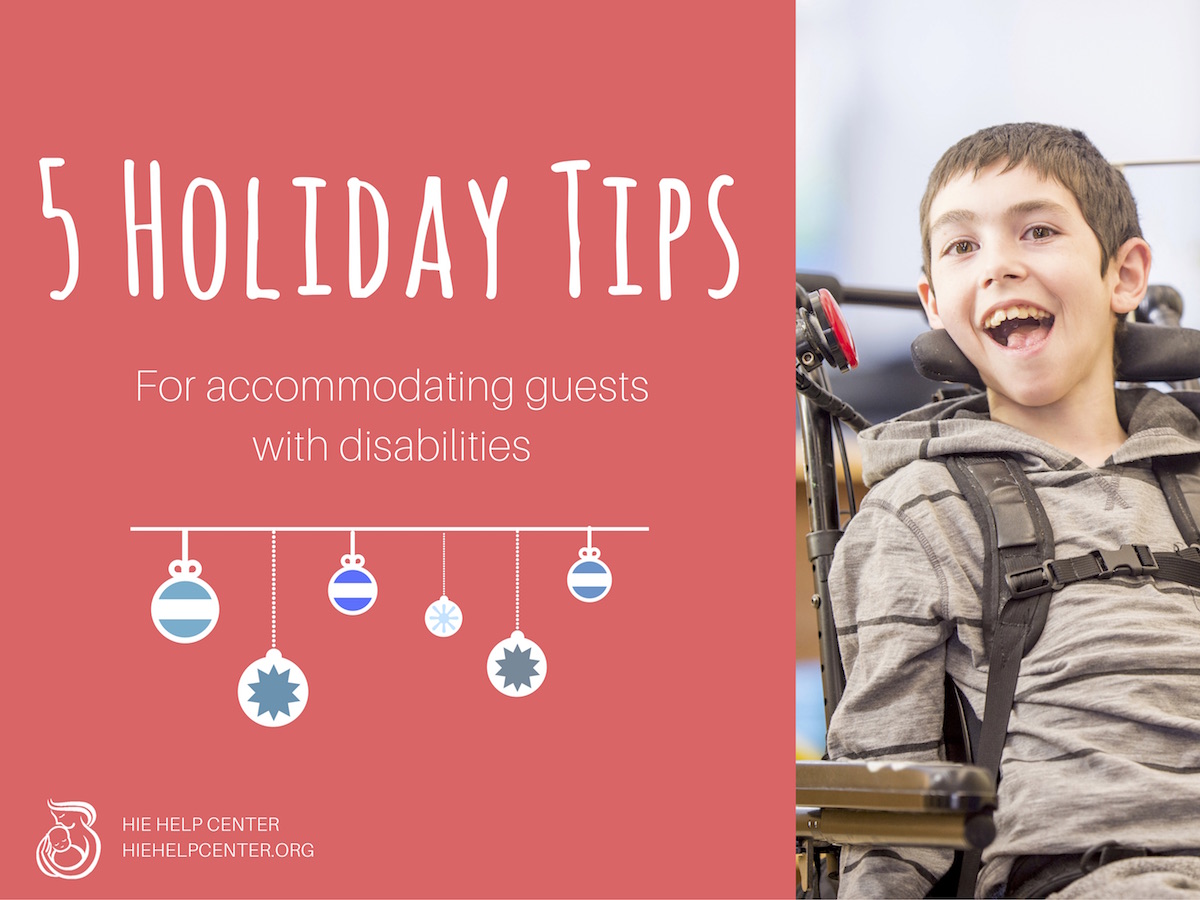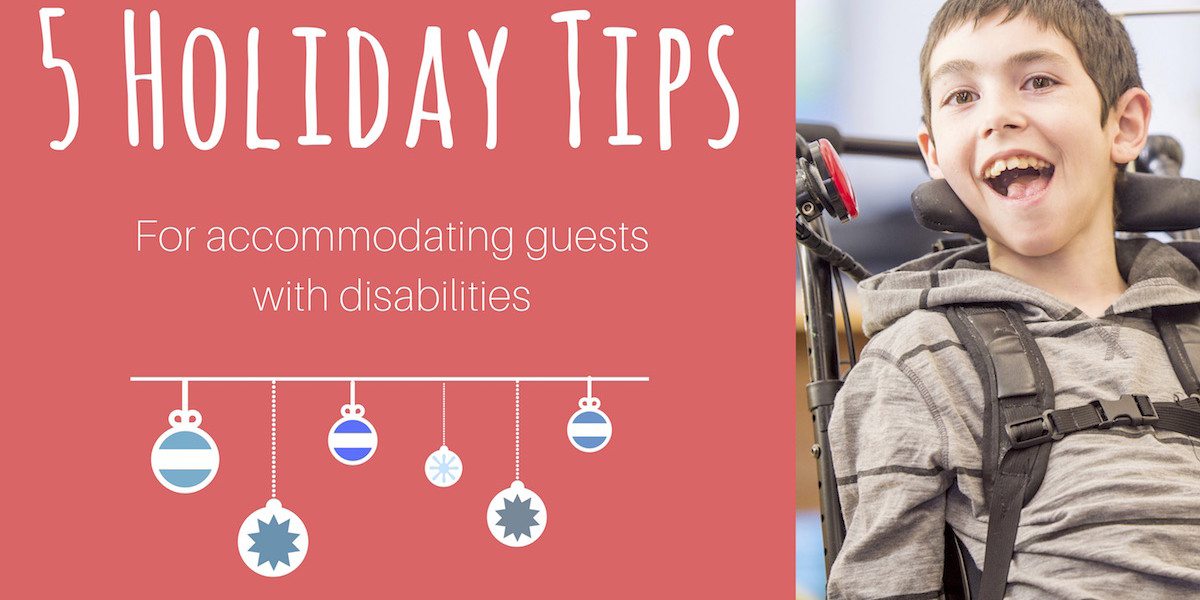
If you are hosting any parties during the holidays this year with disabled guests, you may be wondering how to accommodate them. We’ve laid out five tips to help you be the best host possible:
1. Try to make your home as accessible as you can.
Consider renting or purchasing adaptive equipment to be installed in your home such as portable ramps and temporary grab bars near the toilet and in the shower. If your guests are staying overnight, you will also need to think about additional shower accommodations such as a bench or chair. Finally, ensure that the areas of the house in which the main activities are happening are wheelchair-accessible.
2. Think about ways to reduce the child’s stress.
This is especially important for children with intellectual and/or developmental delays. Some children may quickly become overwhelmed by crowds, probing questions, and constant activity. Try to have a separate space available where they can go to wind down, perhaps with a book, puzzle, or favorite TV show.
3. Consider dietary requirements.
Many children with disabilities such as cerebral palsy or seizure disorders are unable to eat certain foods. Ask in advance what they can and cannot have. Try to prepare at least a couple of options that they will be able to enjoy. Children with chewing and swallowing issues may not be able to eat solid foods and may require softer foods. One way you can accommodate them is by having a blender or food processor handy, so they can have a pureed or softened version of some of their holiday favorites.
4. Respect differences.
Disabled children may quickly become agitated, make a bit of a mess while eating, or do other things you might find “disruptive.” Keep in mind that a child with sensory processing difficulties who becomes overwhelmed and acts out is not trying to be impolite. A child with a motor control impairment who drops food on the table or the floor is not doing so on purpose.
5. Don’t be afraid to ask questions.
Simply ask what you can do to make their visit more enjoyable. Call the child’s parents in advance of the holiday. Explain what accommodations you have already considered, ask what they plan to bring and what else they will require from you.
For example: “I know Rebecca needs to eat soft foods, so I’ll make sure my food processor is available. Beyond that, are there specific foods she has to avoid? I want to make sure she has enough to eat.”
A child with disabilities may not need certain accommodations that you have assumed they do, or may need others you have failed to consider. The best way to find out is to simply communicate.
Can you think of any tips that aren’t in this list? Let us know in the comments!


Leave a Reply
You must be logged in to post a comment.